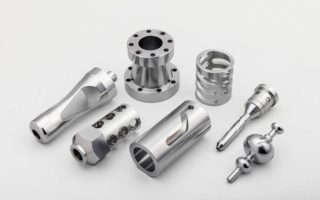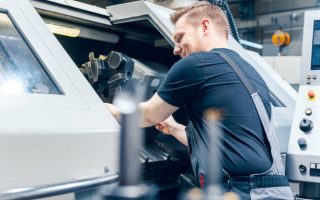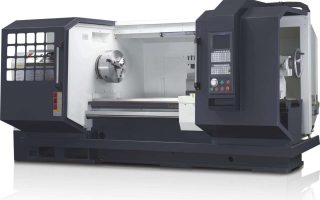
Introduction to CNC Machine Shops
A CNC machine shop is a specialized facility equipped with computer numerical control (CNC) machines that are used to manufacture precision parts and components. These shops are integral to modern manufacturing and are utilized across a wide range of industries, including aerospace, automotive, medical, electronics, and more. CNC machine shops leverage advanced technology to produce parts with exceptional accuracy, repeatability, and efficiency, making them essential for creating complex and high-quality products.
In this article, we will explore what CNC machine shops are, how they operate, the types of machines and processes involved, the industries they serve, and the advantages they offer. By the end, you will have a comprehensive understanding of the role CNC machine shops play in modern manufacturing and why they are so critical to various industries.
What Does CNC Stand For?
CNC stands for “Computer Numerical Control.” It refers to the automation of machine tools through the use of computers that execute pre-programmed sequences of commands. Unlike manual machining, where operators physically control the machine, CNC machining relies on software to control the movement of tools and machinery. This allows for precise and consistent production of parts with minimal human intervention.
The concept of CNC machining revolutionized manufacturing by enabling the production of complex shapes and designs that would be difficult or impossible to achieve with manual methods. CNC machines can perform a wide range of operations, including cutting, drilling, milling, turning, and more, all with high precision and repeatability.
What is a CNC Machine Shop?
A CNC machine shop is a facility where CNC machines are used to fabricate parts and components. These shops are staffed by skilled machinists, programmers, and engineers who work together to design, program, and operate the machines. CNC machine shops can vary in size and scope, ranging from small, specialized workshops to large-scale manufacturing facilities with dozens of machines.
The primary goal of a CNC machine shop is to produce high-quality, precision parts that meet the specifications of their clients. This often involves working with a variety of materials, including metals (such as aluminum, steel, and titanium), plastics, composites, and more. CNC machine shops are known for their ability to handle both small-batch and large-scale production runs, making them versatile and adaptable to different manufacturing needs.
How Do CNC Machine Shops Operate?
1. Design and Programming
The process begins with the design phase, where engineers or designers create a 3D model of the part using computer-aided design (CAD) software. This model serves as the blueprint for the manufacturing process. Once the design is finalized, it is converted into a set of instructions using computer-aided manufacturing (CAM) software. These instructions, often referred to as G-code, dictate the movements and operations of the CNC machine.
2. Material Selection
Next, the appropriate material for the part is selected based on its intended application, mechanical properties, and cost. CNC machine shops often maintain an inventory of raw materials to ensure quick turnaround times. The chosen material is then prepared for machining, which may involve cutting it into manageable sizes or securing it in a fixture.
3. Machining
Once the material is ready, it is loaded into the CNC machine, and the machining process begins. The CNC machine follows the programmed instructions to perform various operations, such as cutting, drilling, milling, or turning. These operations are carried out with extreme precision, often achieving tolerances within a few thousandths of an inch.
CNC machines are equipped with various tools, such as end mills, drills, and lathes, which can be automatically changed during the machining process. This allows for the creation of complex parts with multiple features in a single setup.
4. Quality Control
Quality control is a critical aspect of CNC machining. After the part is machined, it undergoes rigorous inspection to ensure it meets the required specifications. This may involve using precision measuring instruments, such as calipers, micrometers, and coordinate measuring machines (CMMs). Any deviations from the specifications are identified and corrected to maintain the highest level of quality.
5. Finishing and Assembly
Depending on the application, the machined part may require additional finishing processes, such as polishing, anodizing, or coating. In some cases, the part may also be assembled with other components to create a complete product. Once the part is finished and inspected, it is packaged and shipped to the client.
Types of CNC Machines in a Machine Shop
CNC machine shops utilize a variety of machines to perform different types of operations. Some of the most common types of CNC machines include:
1. CNC Milling Machines
CNC milling machines use rotating cutting tools to remove material from a workpiece. They are highly versatile and can create complex shapes, holes, and slots. Milling machines are commonly used for producing parts with intricate geometries.
2. CNC Lathes
CNC lathes are used for turning operations, where the workpiece rotates while a cutting tool removes material. These machines are ideal for creating cylindrical parts, such as shafts, bushings, and threaded components.
3. CNC Routers
CNC routers are similar to milling machines but are typically used for cutting softer materials, such as wood, plastic, and foam. They are commonly used in industries like woodworking, signage, and furniture manufacturing.
4. CNC Plasma Cutters
CNC plasma cutters use a high-temperature plasma arc to cut through metal sheets and plates. They are widely used in industries that require precise cutting of metal, such as automotive and construction.
5. CNC EDM Machines
Electrical discharge machining (EDM) is a process that uses electrical sparks to erode material from a workpiece. CNC EDM machines are used for creating intricate shapes and fine details, especially in hard materials like tool steel.
6. CNC Grinders
CNC grinders are used for precision grinding operations, where a grinding wheel removes material to achieve a smooth surface finish. These machines are often used in the production of tools, dies, and molds.
Industries Served by CNC Machine Shops
CNC machine shops serve a wide range of industries, providing precision parts and components for various applications. Some of the key industries include:
1. Aerospace
The aerospace industry relies on CNC machine shops to produce high-precision parts for aircraft, spacecraft, and satellites. These parts often require tight tolerances and lightweight materials, such as aluminum and titanium.
2. Automotive
CNC machining is widely used in the automotive industry to manufacture engine components, transmission parts, and other critical components. The ability to produce parts with consistent quality and high efficiency makes CNC machine shops invaluable to this industry.
3. Medical
The medical industry requires precision parts for devices such as surgical instruments, implants, and diagnostic equipment. CNC machine shops play a crucial role in meeting the stringent quality standards of this industry.
4. Electronics
CNC machining is used to create components for electronic devices, such as enclosures, connectors, and heat sinks. The ability to work with a variety of materials and achieve intricate designs makes CNC machining ideal for this industry.
5. Energy
The energy industry relies on CNC machine shops to produce parts for turbines, generators, and other equipment used in power generation. These parts often require high durability and precision to withstand demanding conditions.
Advantages of CNC Machine Shops
CNC machine shops offer numerous advantages that make them indispensable to modern manufacturing:
1. Precision and Accuracy
CNC machines are capable of achieving extremely high levels of precision and accuracy, ensuring that parts meet exact specifications. This is especially important for industries like aerospace and medical, where even minor deviations can have significant consequences.
2. Efficiency and Productivity
CNC machines can operate continuously with minimal human intervention, allowing for high levels of productivity. They can also perform multiple operations in a single setup, reducing production time and costs.
3. Versatility
CNC machine shops can work with a wide range of materials and produce parts with complex geometries. This versatility makes them suitable for a variety of applications across different industries.
4. Consistency and Repeatability
CNC machines can produce identical parts with consistent quality, even in large production runs. This repeatability is crucial for maintaining product quality and meeting customer expectations.
5. Cost-Effectiveness
While the initial investment in CNC machines can be high, their efficiency and ability to reduce waste make them cost-effective in the long run. CNC machine shops can also handle both small-batch and large-scale production, providing flexibility to meet different budget requirements.
Conclusion
CNC machine shops are at the forefront of modern manufacturing, providing the precision, efficiency, and versatility needed to produce high-quality parts and components. By leveraging advanced CNC technology, these shops play a critical role in supporting a wide range of industries and driving innovation in product design and manufacturing. Whether you are in aerospace, automotive, medical, or any other industry, CNC machine shops offer the expertise and capabilities to meet your manufacturing needs with exceptional quality and reliability.




